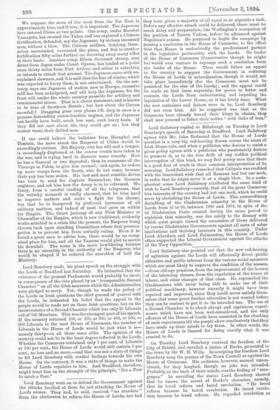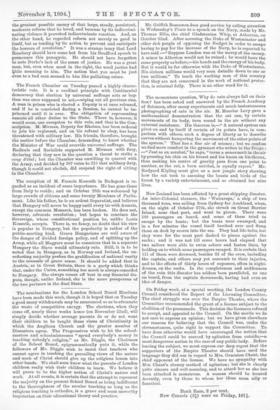On Tuesday Lord Rosebery received the freedom of the City
of Bristol, and unveiled a statue of Burke, presented to the town by Sir W. H. Wills. In accepting the freedom Lord Rosebery sang the praises of the Town Council as against the House of Commons. His audience, however, seemed uncon- vinced, for they laughed, though no joke was intended. Probably, at the back of their minds, was the feeling of "sour- grapes." In unveiling the statue Lord Rosebery showed that he knows the secret of Burke's character, namely, that he loved reform and hated revolution. "He loved reform because he hated revolution. He hated revolu- tion because he loved reform. He regarded revolution as the greatest possible enemy of that large, steady, persistent, moderate reform that he loved, and because by its indiscrimi- nating violence it provoked indiscriminate reaction. And, on the other hand, he regarded reform not merely as good in itself, but as tending by its action to prevent and anticipate the horrors of revolution." It was a strange irony that Lord Rosebery should have come hot from. his Bradford speech to pronounce this panegyric. He should not have forgotten to note Burke's lack of the sense of justice. He was a great man, but, even when most in. the right, the word justice had little meaning to him. The notion that you must be just even to a bad man seemed to him like palliating crime.



















































 Previous page
Previous page